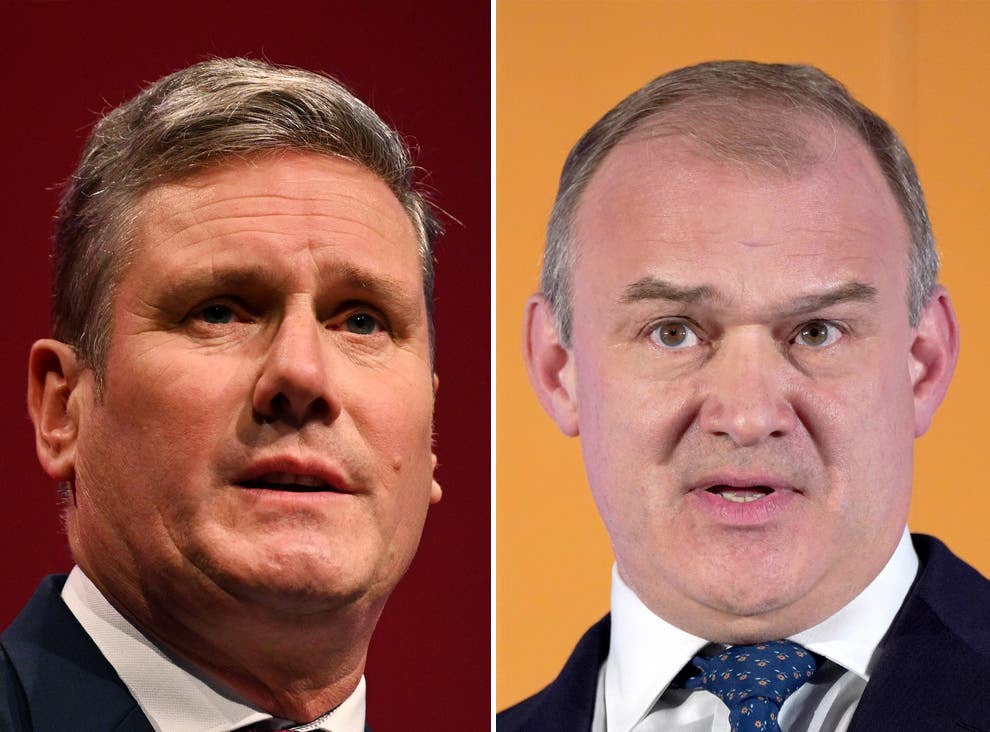Tory chairman mocked for having ‘midas touch’ for opposition at local elections
Greg Hands accused of having negative impact in ‘blue wall’ south, while Rishi Sunak under fire over ‘major mistake’

Conservative chairman Greg Hands was accused of having a “midas touch” for opposition parties after figures showed his party was hammered in many of the places he visited during the local election campaign.
The Tories lost more than 1,000 seats while Labour picked up more than 500 – leading Sir Keir Starmer to claim his party is on course for a majority victory at next year’s general election.
The Liberal Democrats, who saw their best local election results in more than a decade, said they gained 208 council seats in “blue wall” areas in the south of England visited by Mr Hands.
Sir Ed Davey’s party also made a net gain of 69 seats from the Tories in the blue wall contests, which saw the Lib Dems gain control of Guildford and Stratford upon Avon councils.
“Greg Hands has got the Midas Touch, almost everywhere he visits turns Lib Dem gold,” said Lib Dem deputy leader Daisy Cooper. “He was brought in to shore up the blue wall, but ended up seeing it collapse even more.”
The Lib Dems said they are now targeting 20 Tory blue wall seats at the general election – including constituencies held by chancellor Jeremy Hunt, Michael Gove, Dominic Raab, Nadhim Zahawi and Theresa May.
Mr Davey is also set to table a motion of no confidence in the government as soon as parliament returns on Tuesday – a move which would force a general election if it is passed by the Commons.
It comes as Rishi Sunak comes under growing pressure from some senior Tories to change course on policy after Thursday’s drubbing – with calls for tax cuts and moves to help young people onto the property ladder.
Former cabinet minister Simon Clarke said the PM had made a “major mistake” in dropping national house-building targets, claiming it had damaged the Tory chances in the local elections.
“I would say that dropping those targets was a major mistake,” he told BBC Radio 4’s Today programme on Monday – arguing the Tories should not try to compete with the Lib Dems on “not in my back yard” anti-development campaigns.
“If you look at the very serious results in huge swathes of the south where the Lib Dems and Greens have run absolutely amok on an explicitly nimby platform,” said Mr Clarke. “We cannot out-nimby them.”

The former levelling up secretary added: “So we should be making the opposite case and appealing to people who are frankly long-sighted enough to see that this is only going to benefit existing homeowners … It’s not rewarding us in the south east – it’s hurting us.”
Former Tory leader Iain Duncan Smith said the party could still win the next election in an op-ed for The Telegraph. He argued that many voters could return to the party if Mr Sunak offered “lower taxes, lower cost of living, lower immigration”.
Labour would fall 28 seats short of a majority in parliament based on the vote share at the local elections, according to expert Prof Michael Thrasher.
Polling guru Sir John Curtice’s analysis for the BBC also put Labour 14 seats short of the 326 needed for a majority – but warned: “We can’t give a definitive answer because people don’t vote in general elections the same way they do in local elections.”

Mr Davey ruled out a coalition with the Tories after the next election, but refused to do the same for Labour when pressed on the possibility in the event of a hung parliament.
“That is a hypothetical question, because we don’t know what’s going to happen after the next election,” Sir Ed told the BBC on Sunday, adding that his focus is “getting rid of Conservative MPs”.
Sir Ed made suggested another referendum on a proportional representation (PR) voting system would be a key demand for a coalition. “PR is absolutely on the table for the Liberal Democrats, of course it is,” he told the BBC. “I’m determined to try to make sure our democracy is fairer to people and more representative.”
Labour’s shadow health secretary Wes Streeting repeatedly avoided ruling out a deal with the Liberal Democrats, but told the BBC: “We’re just not in that ballpark of talking about coalition governments.”
Martin Baxter, chief executive of Electoral Calculus, told The Independent that Mr Sunak still has a “narrow path to victory” in next year’s general election – but faces a “race against time” to cut into Labour’s poll lead.
Culture secretary Lucy Frazer blamed heavy Tory losses in the local elections on the pandemic and the Ukraine war on Sunday. She conceded that voters were “frustrated and angry” – but claimed Mr Sunak was starting to regain the public’s trust.





Join our commenting forum
Join thought-provoking conversations, follow other Independent readers and see their replies
Comments